Spring is here and to celebrate the renewal of life, nothing is better than a beautiful French poem about a rose. Let me introduce you to Pierre de Ronsard, a Renaissance French poet who wrote delicate and beautiful odes such as "Mignonne allons voir si la rose".
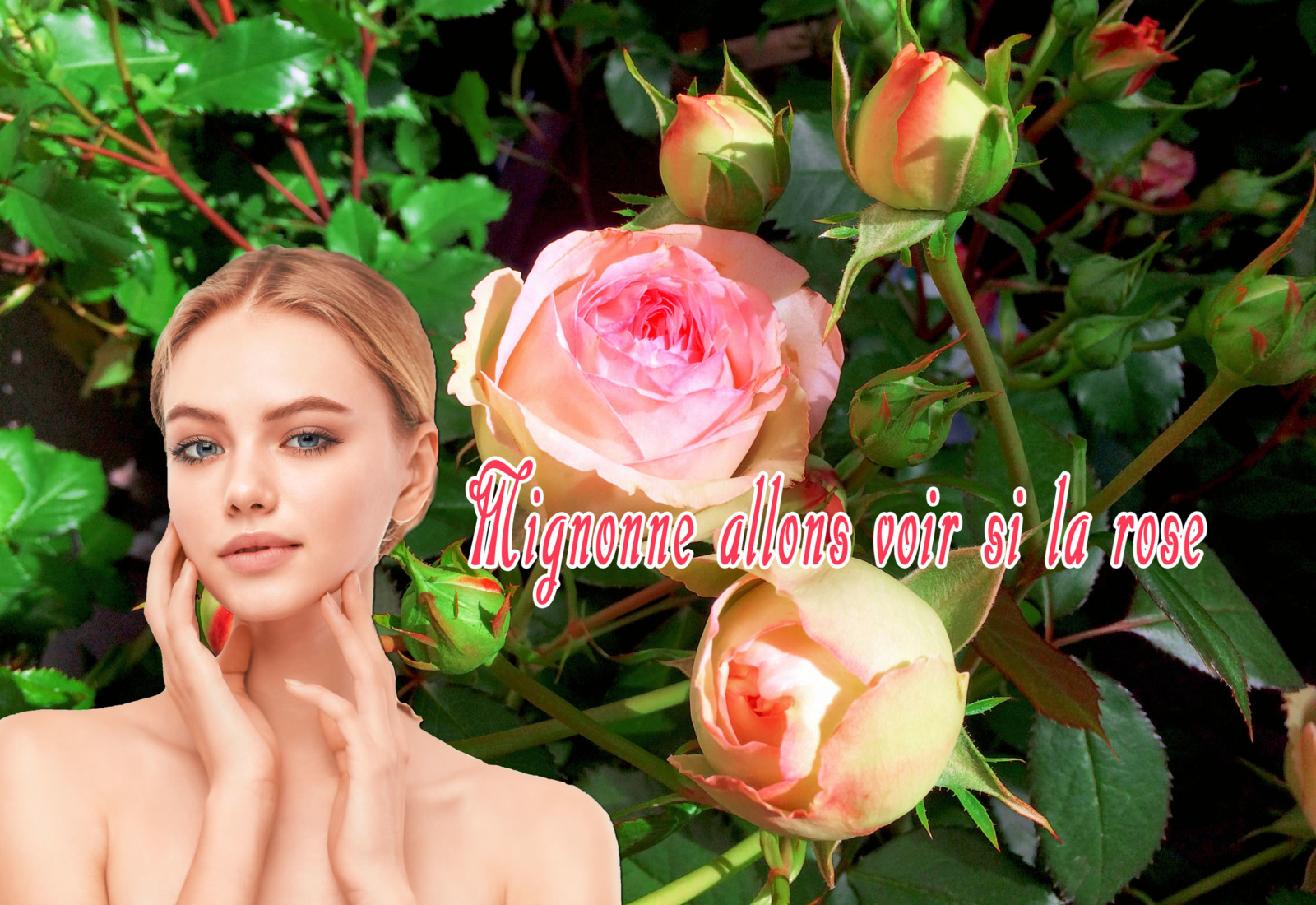
Mignonne allons voir si la rose by Pierre de Ronsard - French Moments
A poem and song about a rose
Pierre de Ronsard (1524 – 1585) was a Renaissance French poet called the "prince of poets".
"Mignonne allons voir si la rose" is one of his most famous poems and was written in 1553. It ranks among the most beautiful poems about a rose.
A delicate ode paying tribute to the beauty of women and nature, "Mignonne allons voir si la rose" was put into music in the 16th century by Jehan Chardavoine.
The poem is devoted to Cassandre Salviati, the daughter of an Italian banker with who he fell in love. Hence the title of the poem: Ode à Cassandre.
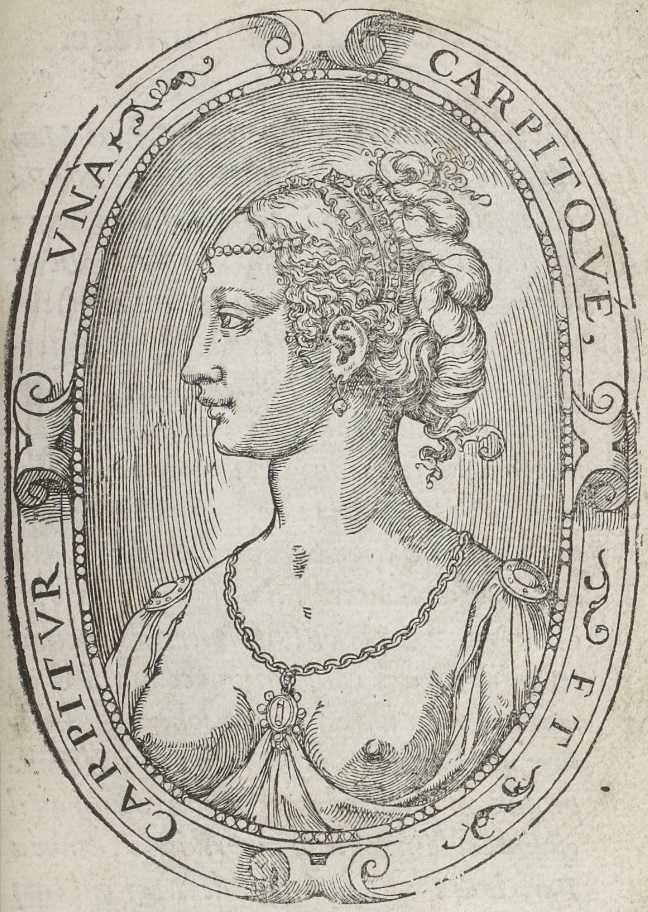
Cassandre Salviati (20 years old)
The French lyrics
A delicate ode paying tribute to the beauty of women and nature, "Mignonne allons voir si la rose" was put into music in the 16th century by Jehan Chardavoine.
The poem is devoted to Cassandre Salviati, the daughter of an Italian banker with who he fell in love. Hence the title of the poem: Ode à Cassandre.
Couplet 1
Mignonne, allons voir si la rose
Qui ce matin avait déclose
Sa robe de pourpre au soleil,
A point perdu cette vesprée,
Les plis de sa robe pourprée,
Et son teint au vôtre pareil.
Couplet 2
Las ! voyez comme en peu d’espace,
Mignonne, elle a dessus la place
Las ! las ! ses beautés laissé choir !
Ô vraiment marâtre Nature,
Puis qu’une telle fleur ne dure
Que du matin jusques au soir !
Couplet 3
Donc, si vous me croyez, mignonne,
Tandis que vôtre âge fleuronne
En sa plus verte nouveauté,
Cueillez, cueillez votre jeunesse :
Comme à cette fleur la vieillesse
Fera ternir votre beauté.
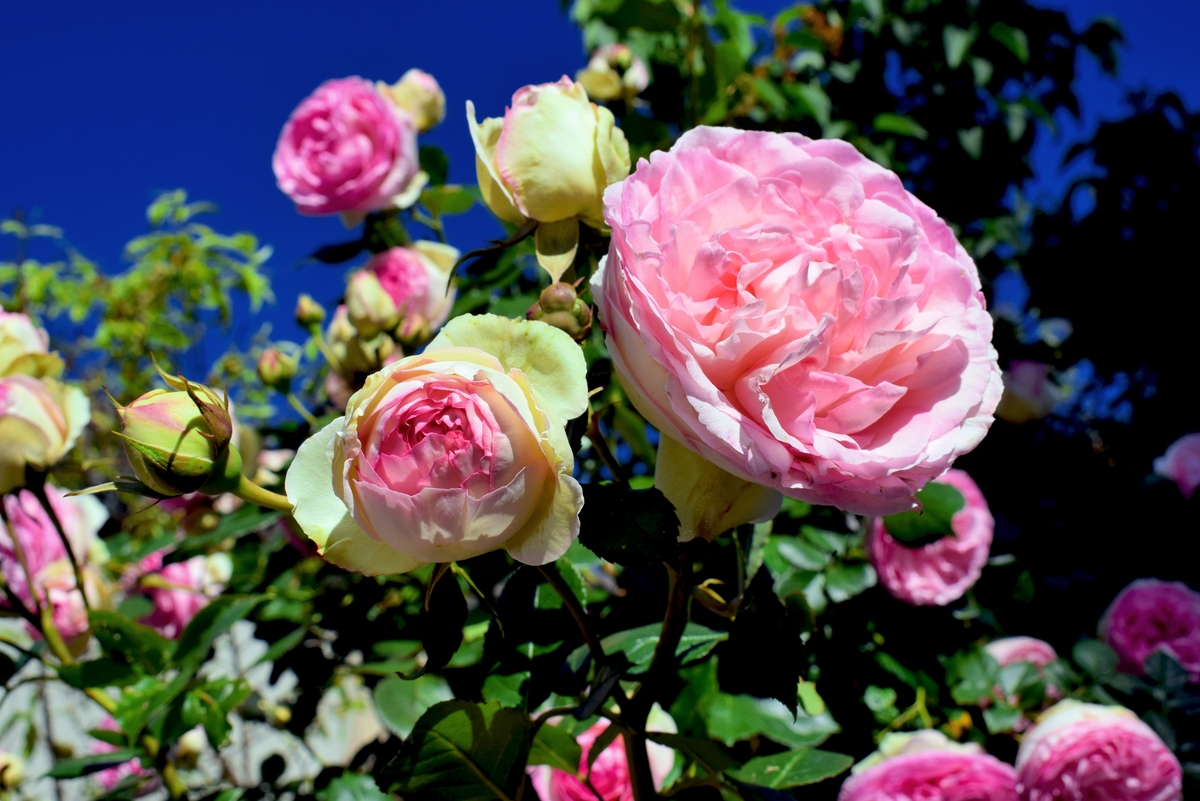
Rose bushes in Santenay © French Moments
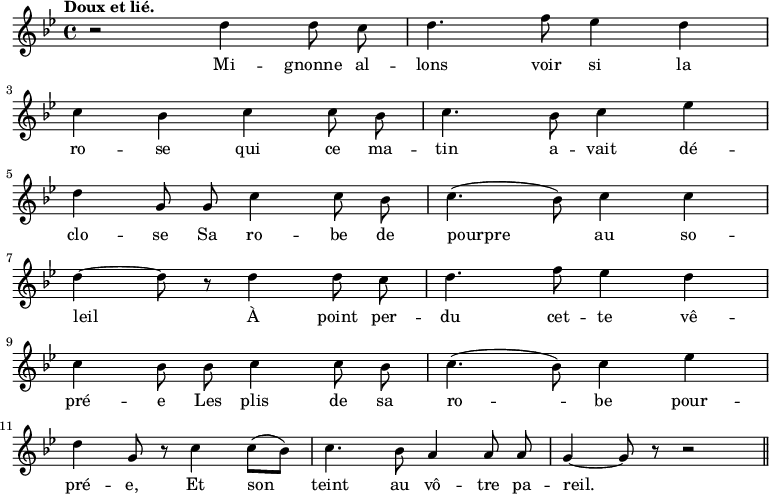
English translation
Sweetheart, come let us see if the rose
Which this morning unfolded
Its crimson dress to the sun
Has lost, at evening,
The folds of its crimson dress
And its colour, so like your own.
Alas! See how in such a short a time,
Sweetheart, she has let
her beauty fall from above!
Nature is truly cruel
When such a flower only lasts
From dawn to dusk!
So if you would believe me, Sweetheart,
While your young age is in flower
In its greenest freshness,
Gather, gather your youth.
Since age will tarnish your beauty
As it has faded this flower.
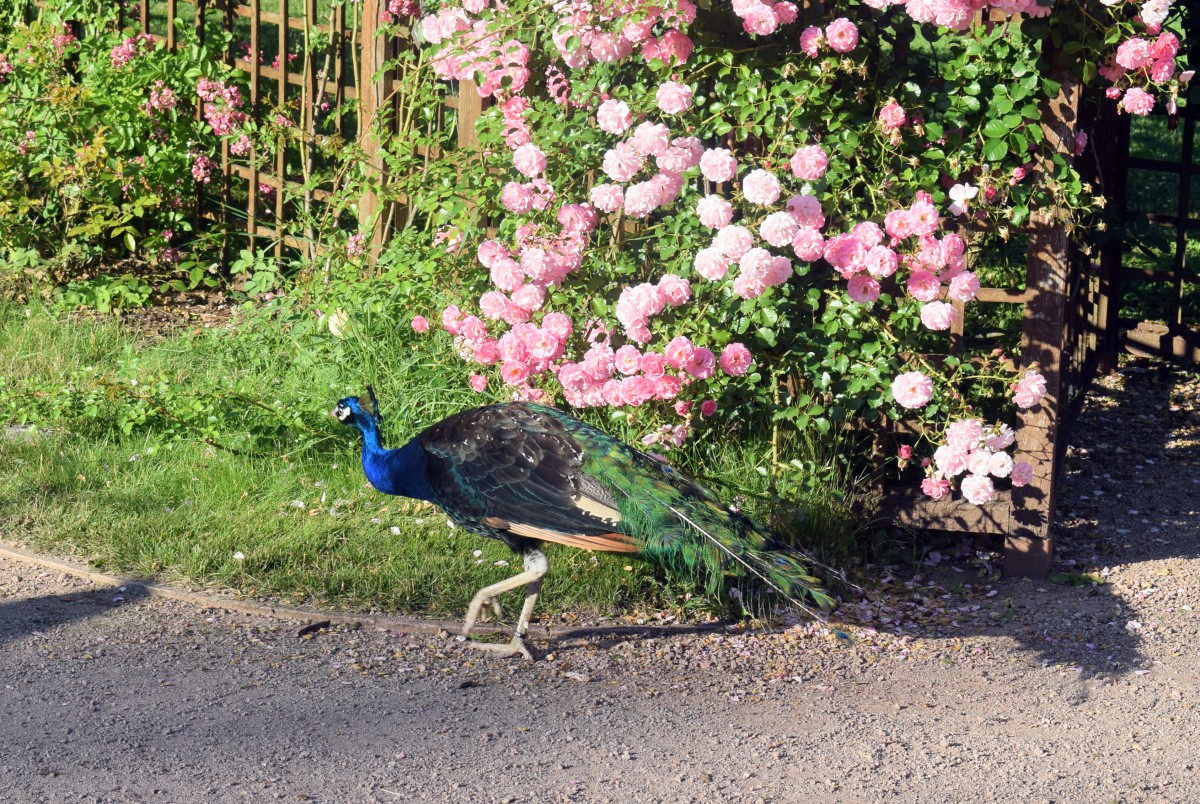
Rose garden at the Parc de la Pépinière © French Moments
Poem analysis
This poem is taken from "Les Amours de Cassandre". It is the name of a collection of French poems intended for a young girl, Cassandre Salvati, with whom Ronsard was in love at the age of 20.
Mignonne allons voir si la rose is an ode, a lyrical poem intended to be accompanied by music.
It is composed of three stanzas of six verses each.
According to Poetry 101: A stanza is a series of lines grouped together in order to divide a poem; the structure of a stanza is often (though not always) repeated throughout the poem. Stanzas are separated from other stanzas by line breaks.
Rose in French
Rose is... la rose in French. It is also the name of a colour often found in roses (although not in Mignonne allons voir si la rose): pink.
- In French culture, the rose is the symbol of youth, beauty and love.
- It is a symbolic flower that is very often found in Ronsard's poetry.

A purple rose © French Moments
Mignonne: meaning of the word
The first word of Ronsard's poem is the one that made the poem famous. Mignonne appears three times, in each of the stanzas.
- In the 16th century, the meaning of the word mignonne was a girl you love, young and beautiful; the beloved.
- Nowadays, the word means charming, graceful, and pretty.
Youth and old age
In the poem, Ronsard evokes the youth that passes like the time of a flower. The French poet refers to the rose in full bloom, which is beautiful and young. He thus contrasts the theme of youth and beauty with that of old age.
It is a recurring theme in both religious and secular literature at that time and in the arts.
For example, the poet shows his young beloved a rose in bloom in the morning and withered in the evening. This symbolises the drama of the ephemeral duration of beauty and life.
Ronsard thus compares the very short time of the beauty of a flower to that of a young girl's beauty.
As a result, he also compares the radiance of his beloved's complexion to the radiance of the colour of the rose (purple, a colour with a hue between red and blue).
The poet thus advises the girl to enjoy her youth, beauty, and the present moment.
Who was the French poet Pierre de Ronsard?
Pierre de Ronsard was born in September 1524 at the Château de la Possonnière, near the village of Couture-sur-Loir, north of Tours.
![Chateau de la Possoniere © GIRAUD Patrick - licence [CC BY 2.5] from Wikimedia Commons Château de la Possoniere © GIRAUD Patrick - licence [CC BY 2.5] from Wikimedia Commons](http://frenchmoments.eu/wp-content/uploads/2014/03/Chateau-de-la-Possoniere-©-GIRAUD-Patrick-licence-CC-BY-2.5-from-Wikimedia-Commons.jpg)
Chateau de la Possonière, birthplace of Pierre de Ronsard © GIRAUD Patrick - licence [CC BY 2.5] from Wikimedia Commons
The fourth child of the knight Louis de Ronsard, he became a page at the court of the dauphin, son of François I. From 1537 onwards, Pierre de Ronsard travelled to Scotland, England and Flanders.
In contact with the ambassadors Claude d'Humières and Lazare de Baïf, he developed a taste for ancient literature.
In Paris, he met Joachim du Bellay, Jean Brinon and many others who formed a new literary movement: the Pléiade.
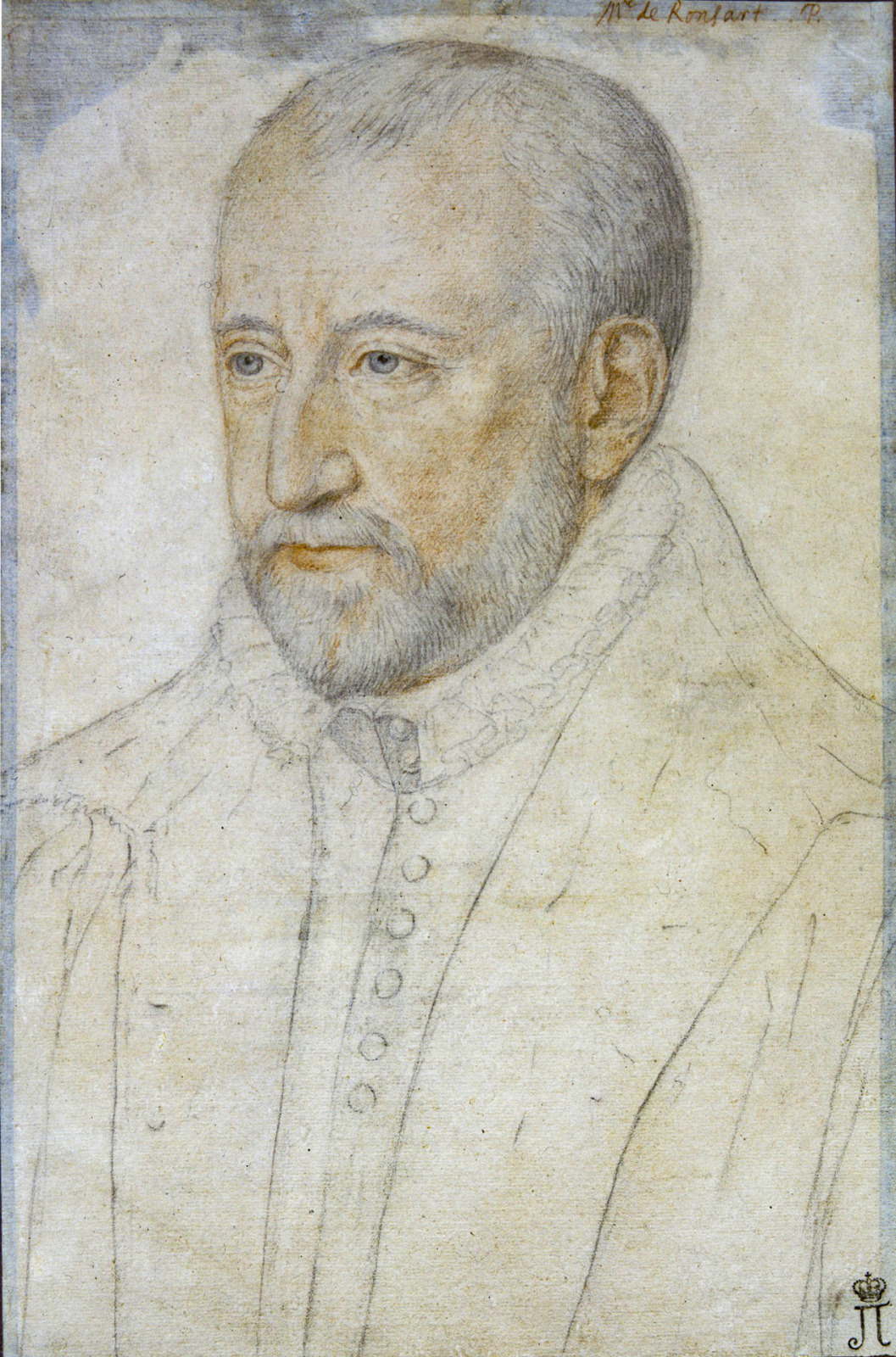
Portrait of Pierre de Ronsard by Benjamin Foulon - circa 1580-1585
The Prince of poets
In 1549, Pierre de Ronsard published Hymne de France, followed by his first great work: Les Odes (1550). In 1552, Les Amours de Cassandre appeared, confirming the young poet's talents. These sonnets celebrate Cassandre Salviati, daughter of a Florentine banker.
Nicknamed "the prince of poets and the poet of princes" (le prince des poètes et le poète des princes), Pierre de Ronsard became the king’s official poet under Charles IX (1560).
Ronsard was a major figure in the poetic literature of the Renaissance. He was indeed one of the most important French poets of the 16th century.
Pierre de Ronsard died on 27 December 1585 at the Saint-Cosme priory in Tours. The poet was buried in the crypt of the priory church, now in ruins.
![Prieuré de Saint-Cosme © Daniel Jolivet - licence [CC BY 2.0] from Wikimedia Commons Prieuré de Saint-Cosme © Daniel Jolivet - licence [CC BY 2.0] from Wikimedia Commons](http://frenchmoments.eu/wp-content/uploads/2014/03/Prieuré-de-Saint-Cosme-©-Daniel-Jolivet-licence-CC-BY-2.0-from-Wikimedia-Commons.jpg)
The priory of Saint-Cosme when Pierre de Ronsard died © Daniel Jolivet - licence [CC BY 2.0] from Wikimedia Commons
Ronsard's poetic art is very refined, sought after in the associations of sounds and rhymes, but it remains simple and light. This is what makes the success of this poem about a rose that many French people still know today.
Other versions of Mignonne allons voir si la rose
The first version I heard about the song was this one sung by French singer and television presenter, Dorothée. It dates back to 1982.
The following version is much older, at least in style:
The French medieval band Les Ménestriers recorded a version of the song in 1972:
This poem about a rose also inspired a famous polyphonic song by Guillaume Costeley (1530-1606).
The rose Pierre de Ronsard
In reference to his ode beginning with Mignonne allons voir si la rose, Pierre de Ronsard gave its name to one of the most beautiful roses in the world: 'Eden’.
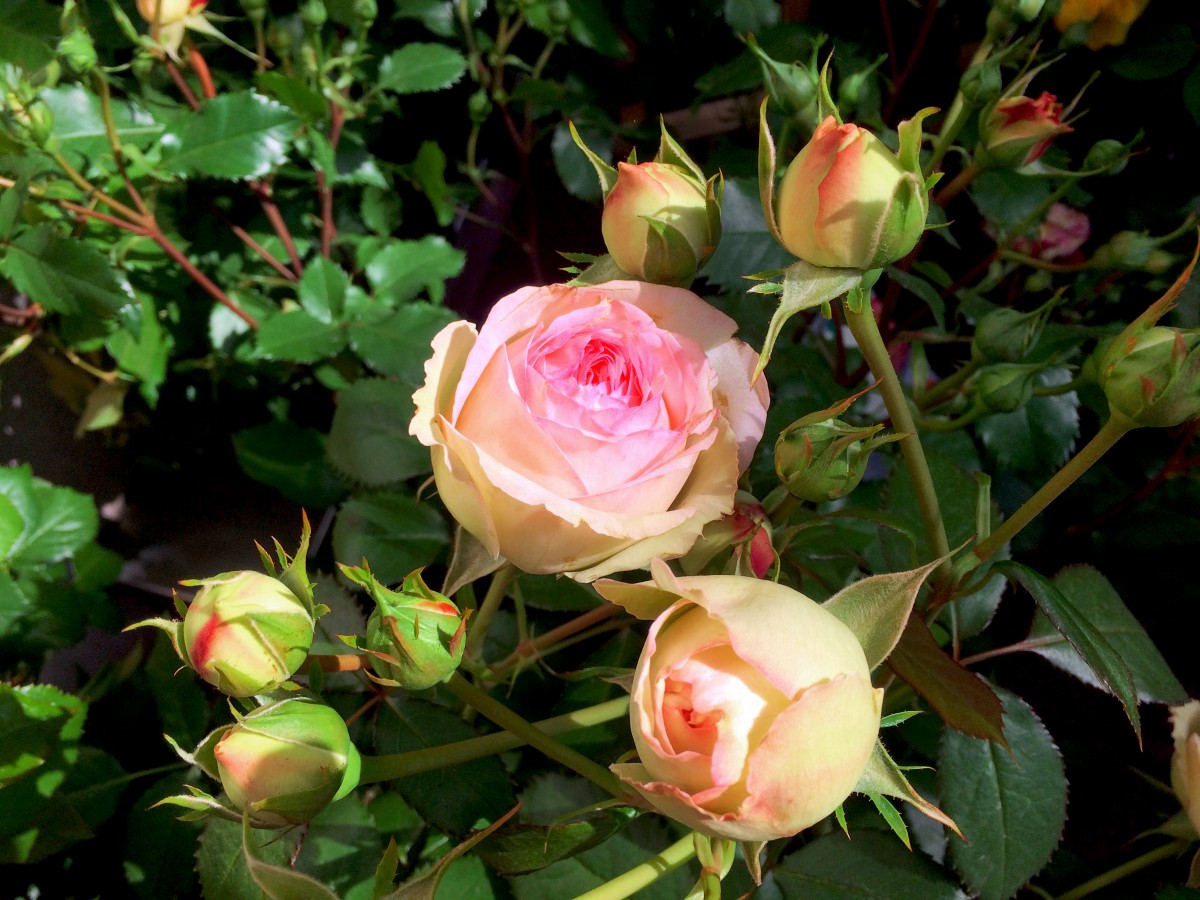
Ronsard Roses © French Moments
The light pink and white climbing rose was created by Marie-Louise Meilland who introduced it in France in 1985.
In 2006, the rose Pierre de Ronsard won the prestigious title of World's Favourite Rose and entered into the Rose Hall of Fame. It is the highest title a rose can be granted.
You can admire the rose in many rose gardens in Paris and across France.
Famous songs and poems about a rose
There are several songs and poems about a rose in French and English literature. Here is below a short selection.
Aubépine
Aubépine, ô joli mai,
ouvre tes jolis yeux, écoute :
la rose dort encore
nul n’ose l’éveiller, mais elle va s’ouvrir
et déployer en majesté
les plis de son manteau pourpres.
English poet William Blake (1757-1827)
La rose-thé
La plus délicate des roses
est, à coup sûr, la rose-thé.
son bouton aux feuilles mi-closes
de carmin à peine est teinté.
On dirait une rose blanche
qu’aurait fait rougir de pudeur,
en la lutinant sur la branche,
un papillon trop plein d’ardeur.
Son tissu rose et diaphane
de la chair a le velouté ;
auprès, tout incarnat se fane
ou prend de la vulgarité.
Comme un teint aristocratique
noircit les fronts bruns de soleil,
de ses sœurs elle rend rustique
le coloris chaud et vermeil.
Mais, si votre main qui s’en joue,
a quelque bal, pour son parfum,
la rapproche de votre joue,
son frais éclat devient commun.
Il n’est pas de rose assez tendre
sur la palette du printemps,
madame, pour oser prétendre
lutter contre vos dix-sept and.
La peau vaut mieux que le pétale
et le sang pur d’un noble cœur
qui sur la jeunesse s’étale,
de tous les roses est vainqueur !
Théophile Gautier (1811-1872)
La rose de l’Infante
La rose épanouie et toute grande ouverte,
sortant du frais bouton comme d’une urne ouverte,
charge la petitesse exquise de sa main.
quand l’enfant, allongeant ses lèvres de carmin,
fronce, en la respirant, sa riante narine,
la magnifique fleur, royale et purpurine,
cache plus qu’à demi ce visage charmant,
si bien que l’œil hésite, et qu’on ne sait comment,
distinguer de la fleur ce bel enfant qui joue,
et si l’on voit la rose, ou si l’on voit la joue.
Victor Hugo (1802-1885)
Kiss from a Rose
When mentioning songs and poems about a rose, how can we forget Seal’s Kiss from a Rose (released July 1994) :
In France, the song peaked at position 8 and won Gold certification with over 250,000 sales.
Want to know more?
- Find out more about Spring in France.
- Read more about French poet Pierre de Ronsard on Wikipedia.
Pin it for later!
If you liked what you read, pin it on Pinterest:
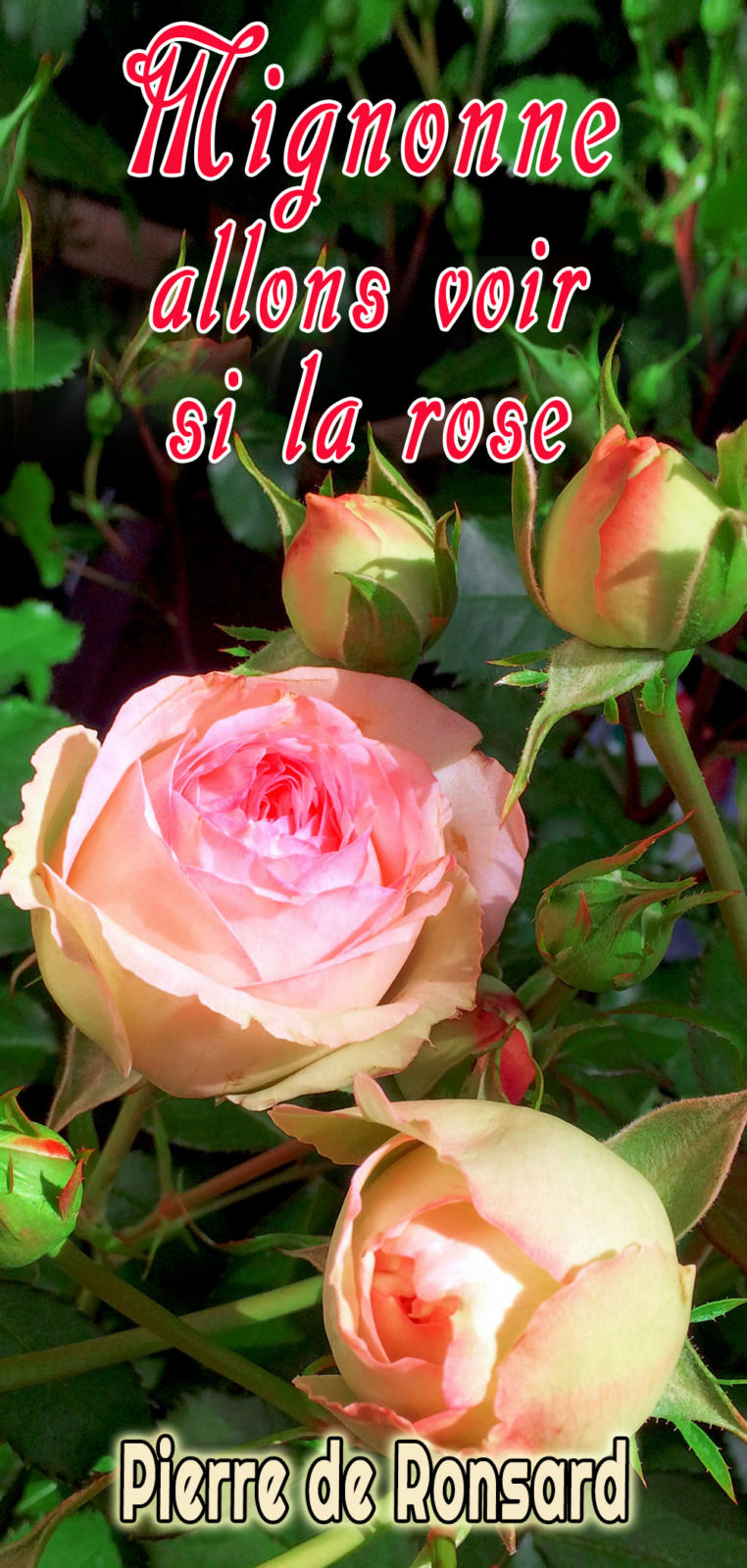

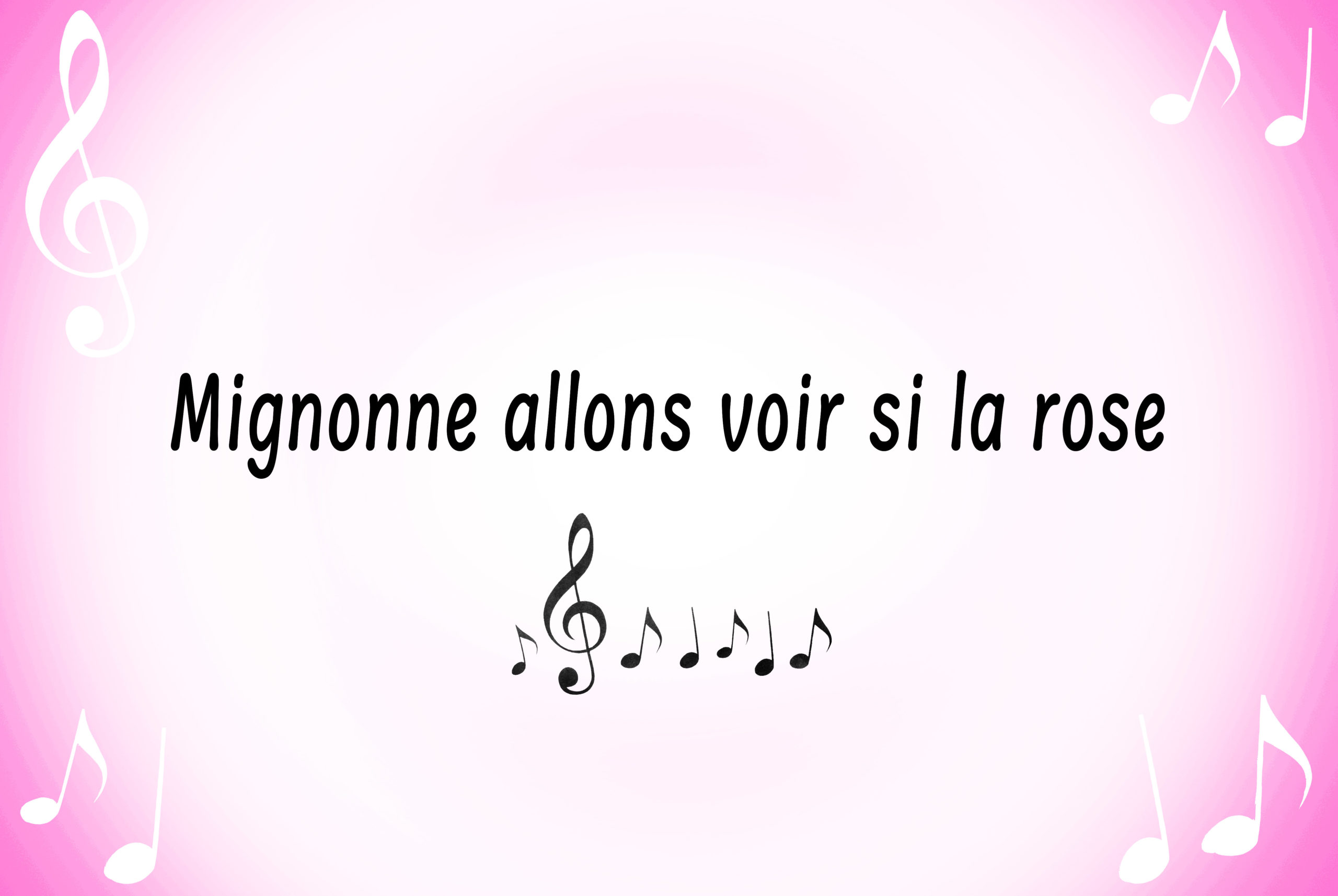

Très mauvaise écriture du poème en français… Je vous mets donc le VRAI poème de Ronsard…
Ode à Cassandre
Mignonne, allons voir si la rose
Qui ce matin avait déclose
Sa robe de pourpre au soleil,
A point perdu cette vesprée
Les plis de sa robe pourprée,
Et son teint au vôtre pareil.
Las ! voyez comme en peu d’espace,
Mignonne, elle a dessus la place,
Las, las ses beautés laissé choir !
Ô vraiment marâtre Nature,
Puisqu’une telle fleur ne dure
Que du matin jusques au soir !
Donc, si vous me croyez, mignonne,
Tandis que votre âge fleuronne
En sa plus verte nouveauté,
Cueillez, cueillez votre jeunesse :
Comme à cette fleur, la vieillesse
Fera ternir votre beauté.
Bonjour Colette,
Merci beaucoup pour cette information précieuse. Je viens de mettre à jour cet article avec la VRAIE version que vous nous avez envoyée. Bonne journée et à bientôt ! Pierre
Bonjour Pierre,
J’ai créé une courte vidéo de “Mignonne allons voir si la rose” adaptée à un public plus jeune. J’ai pensé que vous seriez sans doute intéressé de la partager sur votre site. Bonne journée!
https://youtu.be/UwrWDOcRUo8